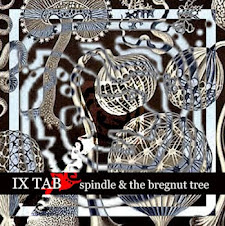
The original version of Industrial music died in 1978 after the release of Throbbing Gristle's second album DOA. The name says it all: The Third and Final Report. After this, TG released 20 Jazz Funk Greats (so so) and the great demi-live album Heathen Earth (probably their greatest 'musical' achievement) but by then the original Mission had been terminated and they were already on a new tangent, one which would lead down various occult pathways to Coil, Psychic TV and on to the millions of imitators...
It's all to do with marmalade.
The inclusion of that word, in the lyrics to 'Hit By A Rock' is the pinnacle of old industrial, the moment where everything crystallized, the moment which still sets them apart from all that came afterwards. What most people never get about TG is that they were celebrating the ordinariness of the 1970s. They found an odd beauty in the prosaic, a strange light emanating from the quotidian. The music might have been occasionally fierce, the lyrical themes sometimes grim but those that thought 'Slug Bait' or 'Hamburger Lady" typified their artistic concerns are missing the point in the same way as those who whimper that Leonard Cohen is depressing.
When Gen sings:
'Spoiling my breakfast, Hit by a rock, Blood and brains in my marmalade'
it's the definitive moment in industrial music, a moment of pure clarity (nowadays they'd call it 'hauntological' ) that few bands dared to attempt. Most of the copyists went for the "My Dad's Bigger Than Your Dad" horror samples or medical nasties but they missed what made TG truly revolutionary. Around the same time they also released the single 'United' and it's a sample near the end of that sweet song (TG could be sweeter than anyone) of a man urging his kid on in a football match or something that distances them from all the rest. This sample and Hit By A Rock's use of the word 'marmalade'* (Can you imagine SPK using the word marmalade? Can you imagine Clock DVA?) brings everything into sharp focus: the world is a raw film, these little events that shape us documented and described, almost unadulterated.
Almost.
The cover too, in all it's deliberately ambiguous ordinariness, couldn't have been any better - it's a perfect match for the music and perhaps the design is still sending faint echoes down to the likes of the people at Ghost Box, to my mind the only recent artists that truly seem to 'get' where TG were coming from (I have no idea if they know the music itself).
For an album supposedly disjointed and patched-up the themes are remarkably consistent - it's practically a concept album. We have the working mens' club verite of Peter Christopherson's "In The Valley Of The Shadow Of Death' and Cosey Fanni Tutti's "Hometime" - both smudges of real-life, audio (almost) ready-mades.
These avenues weren't really explored in what came later for Industrial, not even by TG themselves who dipped into Burroughs and the occult and futurism in the albums to follow. Thy released their Final Report and pretty much left it at that; there were new themes to follow, darker places to walk.
In March, TG are to release a new studio album. I wonder where they've got to ?
A Yousendit Tesco-Death-Disco-Anthem
* Can it be a coincidence that they choose one of their most 'rock' songs, complete with stops and starts and a sing-a-long chorus, to use a word that has no real rhyme in English?




















2 comments:
Yes! Right down to the pics of Tesco and the car park on the back cover. Also, I can't think of any other industrial groups who hit the level of surrealism of "Last Exit" (flicking between being beaten up on a tube train and Prince Philip fucking the queen). The first Rat Club gig also had that song about going to the Ear Nose and Throat hospital and meeting, er, Goldilocks, and that bizarre rant / pseudo-survey about journalists abusing guest lists and how many people pay their train fares....
But yeah, DOA really does capture Grim Britannia. I used to think the concept was one of heavy surveillance, peoples' homes / workplaces / hospitals / laboratories being bugged, with a massive power surge at the end ("Wall of Noise") as the hardware all overloads...
Also, somebody told me that "Hamburger Lady" was based on the diary of a real-life pervert who worked at a hospital and used to masturbate over burns unit victims until he was caught, and that TG somehow obtained the diary.
All rubbish of course, but hey, that's industrial, full of myths!
Welcome to the Tesco disco ... where you can get your mother on a bad night, as Gen once said.
The strange genius of T.G. ... I agree totally - like Burroughs, too many just stop at the shock tactics, and never appreciate the subtler aspects. Britian in the 70s, certain aspects of it are caught very accurately by T.G. ... certainly a great deal more than the so-called political bands. I mean, the real world was very like T.G., but nothing at all like The Clash. ... 'Hometime', for example. I always loved 'Weeping', Gen manages to stay in tune for, oh, seconds.
I'm a proud owner of one of the original '24 hours' box sets - a real little artifact, that.
Post a Comment